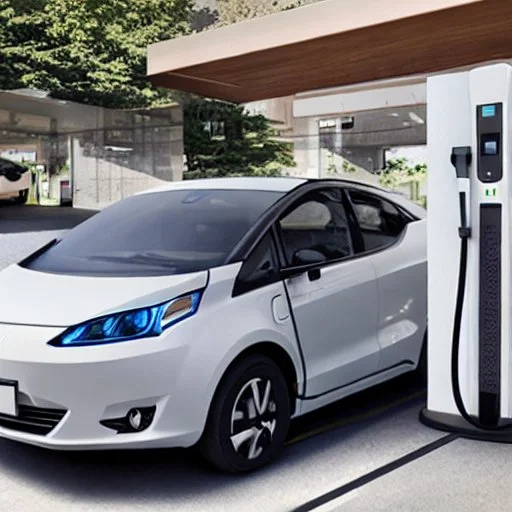July 19, 2025

Electric vehicles have become increasingly popular in recent years, mainly due to their positive impact on the environment and convenience for owners. To encourage more people to switch to electric vehicles, it's important to have a good infrastructure of charging stations in place. This article will delve into the many benefits of installing electric vehicle charging stations, including positive environmental impacts, convenience for electric vehicle owners, higher adoption rates, economic benefits, and opportunities for renewable energy sources. Overall, the installation of these charging stations is highly advantageous and offers numerous benefits to those who use them.
Installing electric vehicle charging stations provides a great opportunity to decrease greenhouse gas emissions and other air pollutants, leading to a more sustainable environment. By having access to charging stations, people are more likely to switch from relying on traditional petrol vehicles to eco-friendly electric vehicles. This change in transportation will significantly reduce the amount of carbon dioxide released into the atmosphere, helping to mitigate some of the pressures caused by global warming. Furthermore, energy conservation is also a significant benefit of installing electric vehicle charging stations as electricity can be produced more efficiently than gasoline or diesel fuel. As a result, fewer resources are required for production, resulting in reduced emissions and improved air quality overall.
The availability of charging infrastructure is essential for EV drivers, as it allows them to charge their vehicles while on the move, increasing the adoption of electric vehicles. Public charging networks offer cost savings with discounted rates compared to home or workplace-based chargers. These charging points need to be widely available and easily located, which is achieved through mapping tools and mobile applications. These efforts promote electric vehicles as a reliable form of transportation within and beyond cities.
Encouraging the adoption of electric vehicles in Australia largely depends on providing a convenient and reliable charging infrastructure. Installing electric vehicle (EV) charging stations can effectively reduce emissions and create incentives for people to purchase EVs.
Providing EV owners with access to charging stations increases convenience and is an important step in increasing the rate of EV adoption. In many cases, a lack of access to charging points can deter potential buyers of electric cars.
By offering more accessible charging options, cities and other organizations are helping to break down this barrier by making it easier for people to own an EV. Additionally, installing more public charging points across the region helps provide greater convenience for existing EV owners by making it easier for them to charge their cars at multiple locations while out and about.
This increased convenience further incentivizes people who may already be considering purchasing an electric car, thus helping increase the overall rate of EV adoption in any given area.
Adoption of electric vehicles (EVs) can bring economic benefits to a region by reducing emissions and providing convenient charging infrastructure. Cost savings are realised through government subsidies for EV installation, as well as energy efficiencies from the use of renewable energy sources to power these stations.
Additionally, local businesses may benefit from increased foot traffic generated by EV owners using nearby charging stations. By providing access to EV charging infrastructure, communities can also reap the rewards of reduced air pollution and improved public health outcomes due to decreased greenhouse gas emissions.
The installation of electric vehicle charging stations can create an additional source of income for private businesses or local governments who own them. Through leasing or maintenance fees, municipalities can recoup some of their costs associated with establishing a network of public EV chargers. Furthermore, increased demand for EVs could result in job creation related to the manufacture and installation of these charging systems.
In summary, there are numerous economic advantages that come with the adoption and installation of electric vehicle charging stations across regions.
Utilising renewable energy sources to power electric vehicle charging stations can result in significant environmental and economic benefits in Australia. By installing electric vehicle charging stations that rely on renewable energy sources, it is a cost-effective solution for transitioning from traditional fuel sources to clean energy.
Charging station owners can benefit from this transition by reducing their dependence on grid-based electricity and taking advantage of cost savings associated with using renewable sources such as solar or wind power. Additionally, transitioning to clean energy can help larger communities in Australia by reducing greenhouse gas emissions and contributing to overall environmental health.
The installation of electric vehicle charging stations powered by renewable energy also has potential economic implications in Australia, as it creates new job opportunities in areas related to construction, manufacturing, engineering, and maintenance. This can include tasks such as installing solar panels or constructing wind turbines necessary for producing renewable electricity needed at the charging station sites.
Furthermore, local businesses in Australia may also benefit through increased revenue due to an increase in consumer traffic around these locations.
The installation of electric vehicle charging stations provides numerous advantages for the environment, EV owners, and local economies. The reduced emissions from EVs help to minimize air pollution and decrease our dependence on fossil fuels.
This added convenience also enables EV owners to confidently travel longer distances, knowing they can easily recharge their vehicle along the way. Moreover, these charging stations make it easier for more people to consider purchasing an electric vehicle by providing them with more locations to charge.
By making EVs more accessible, cities can benefit from an increase in economic activity as well as access to renewable energy sources that could be used to power these charging stations.
Ultimately, installing electric vehicle charging stations is a step towards creating a cleaner, more convenient future for everyone.